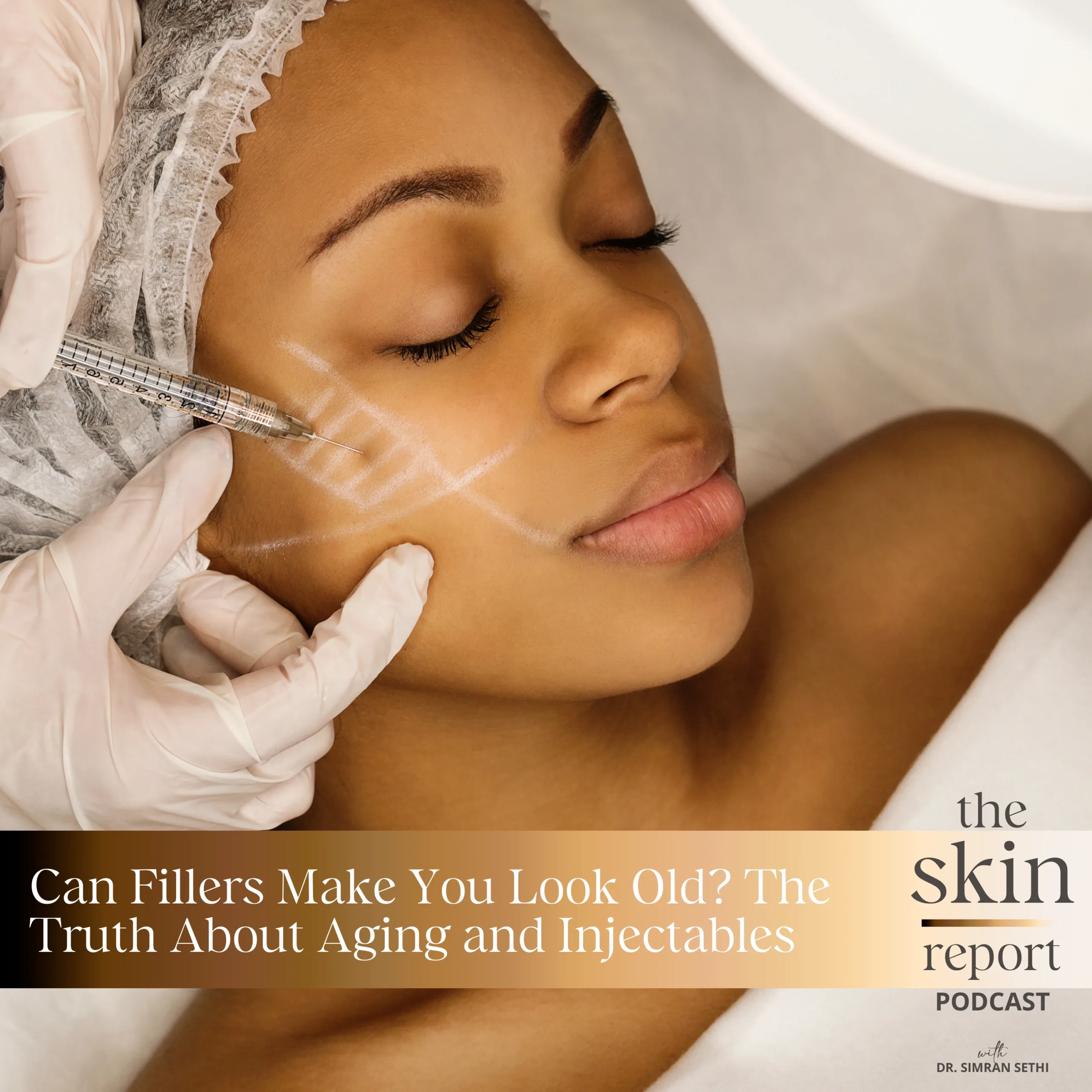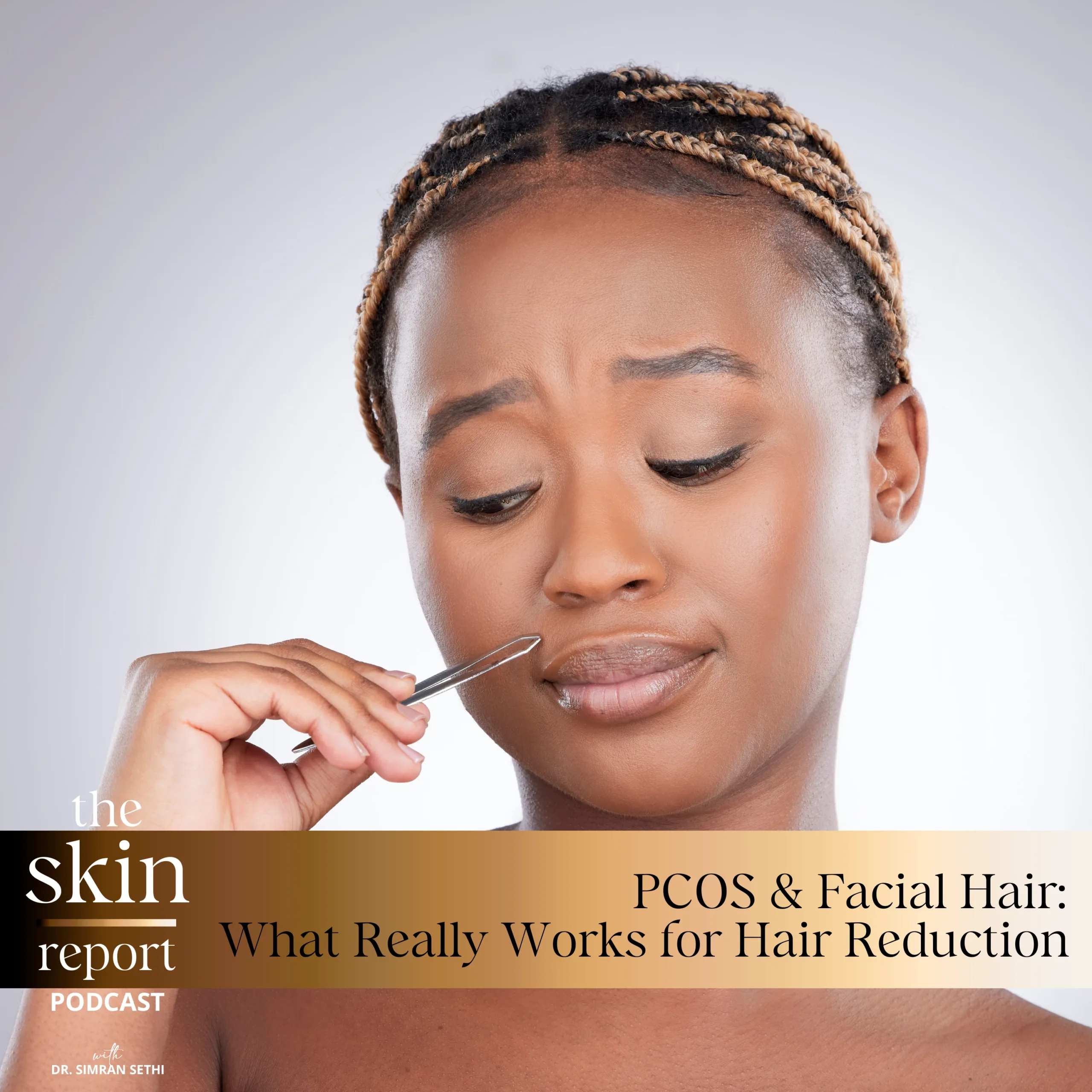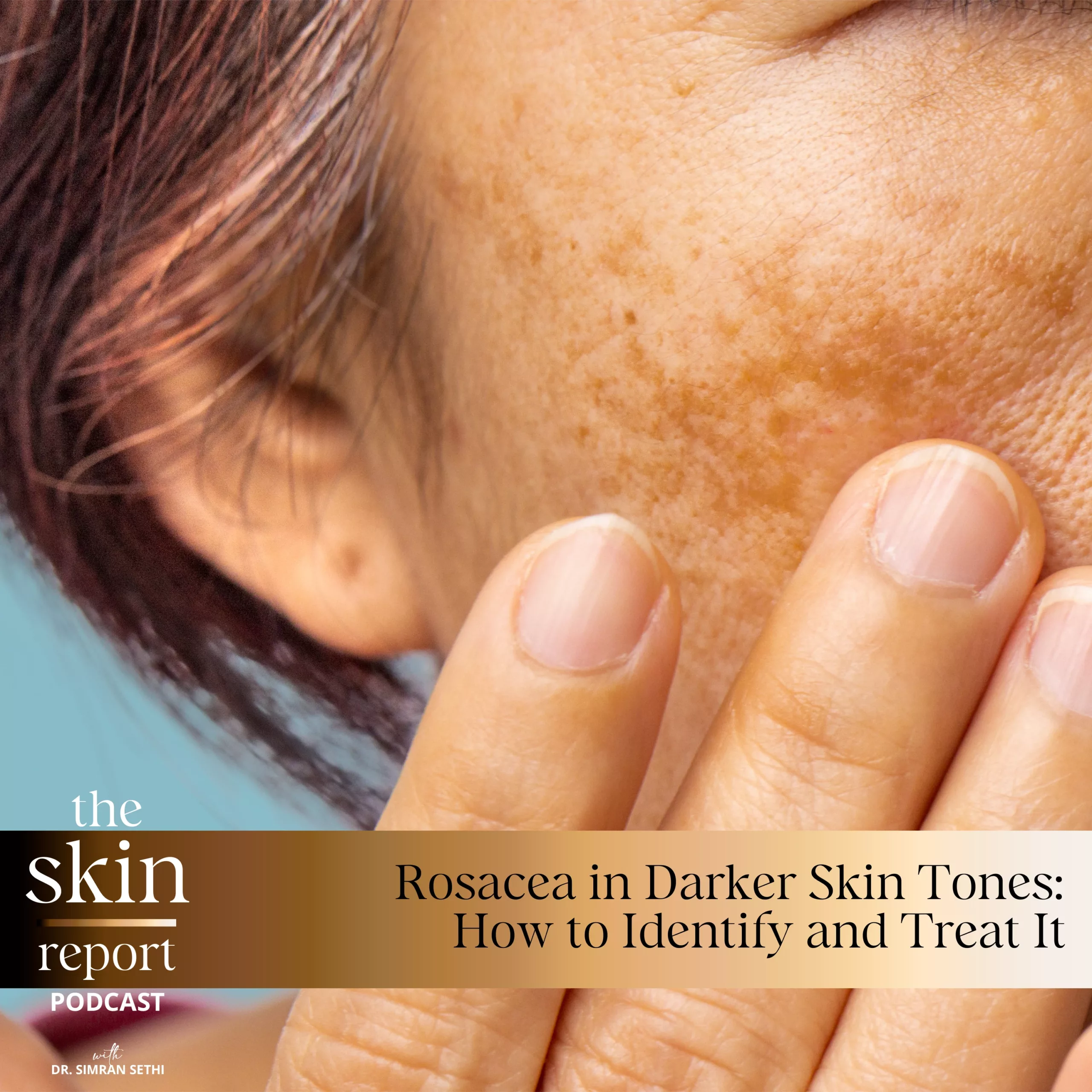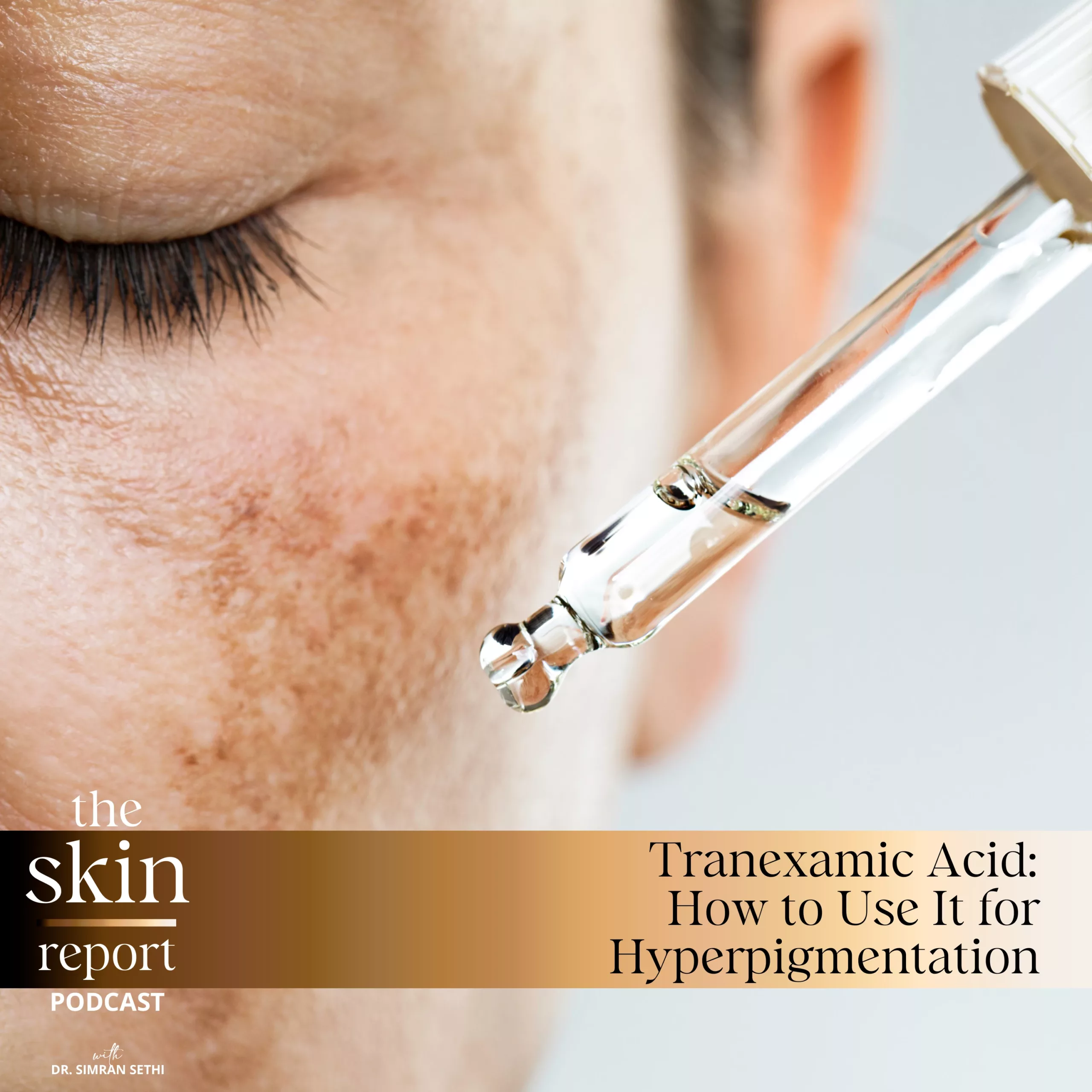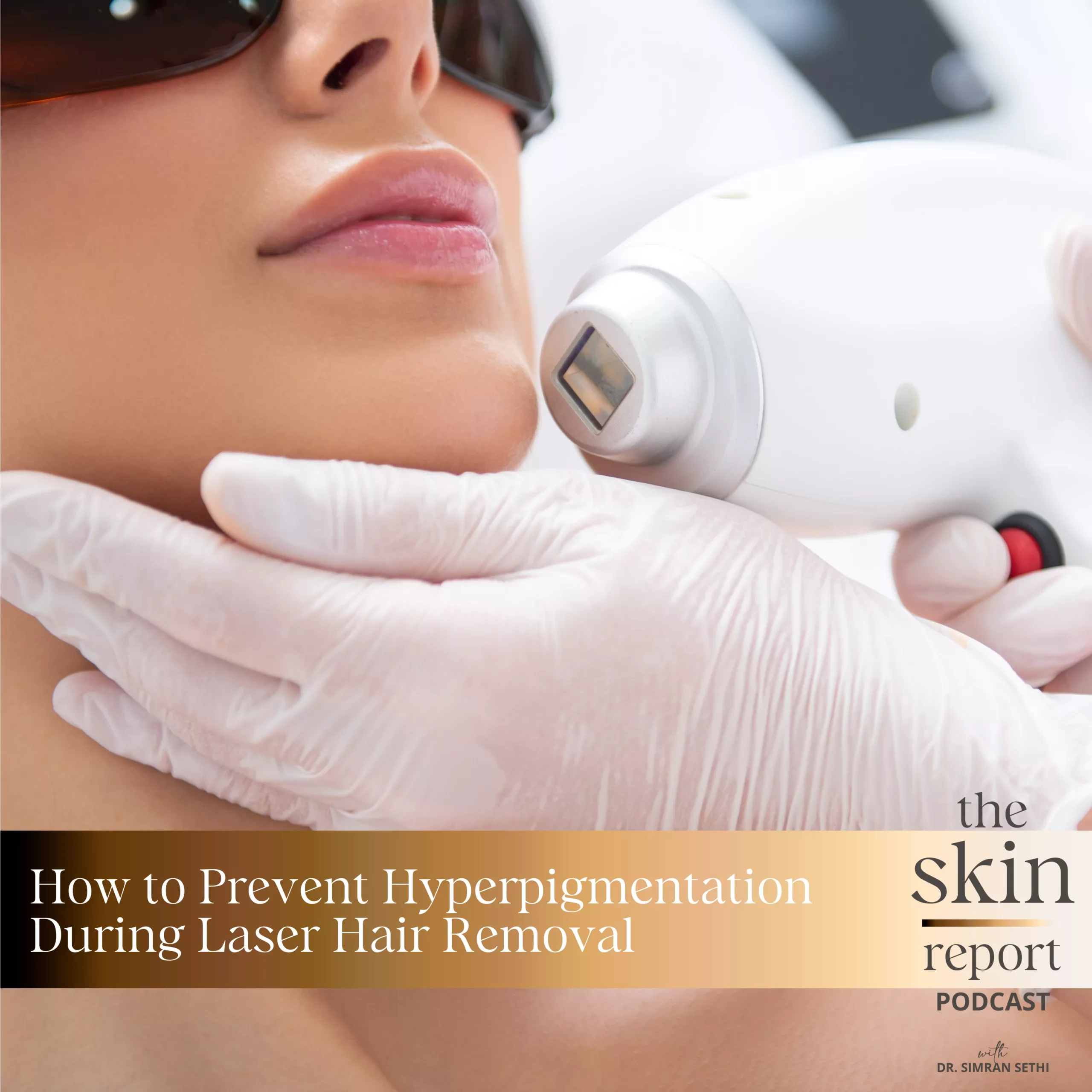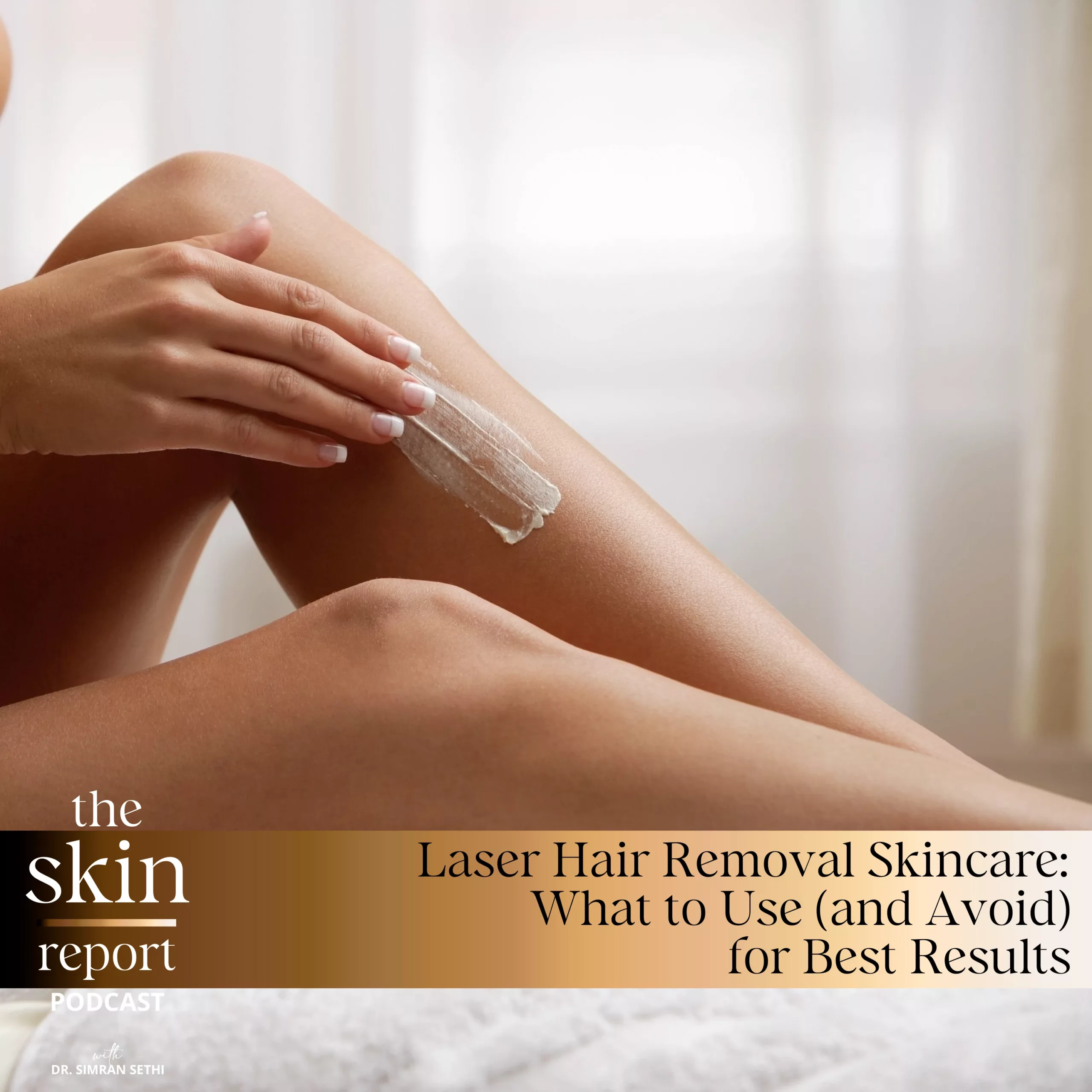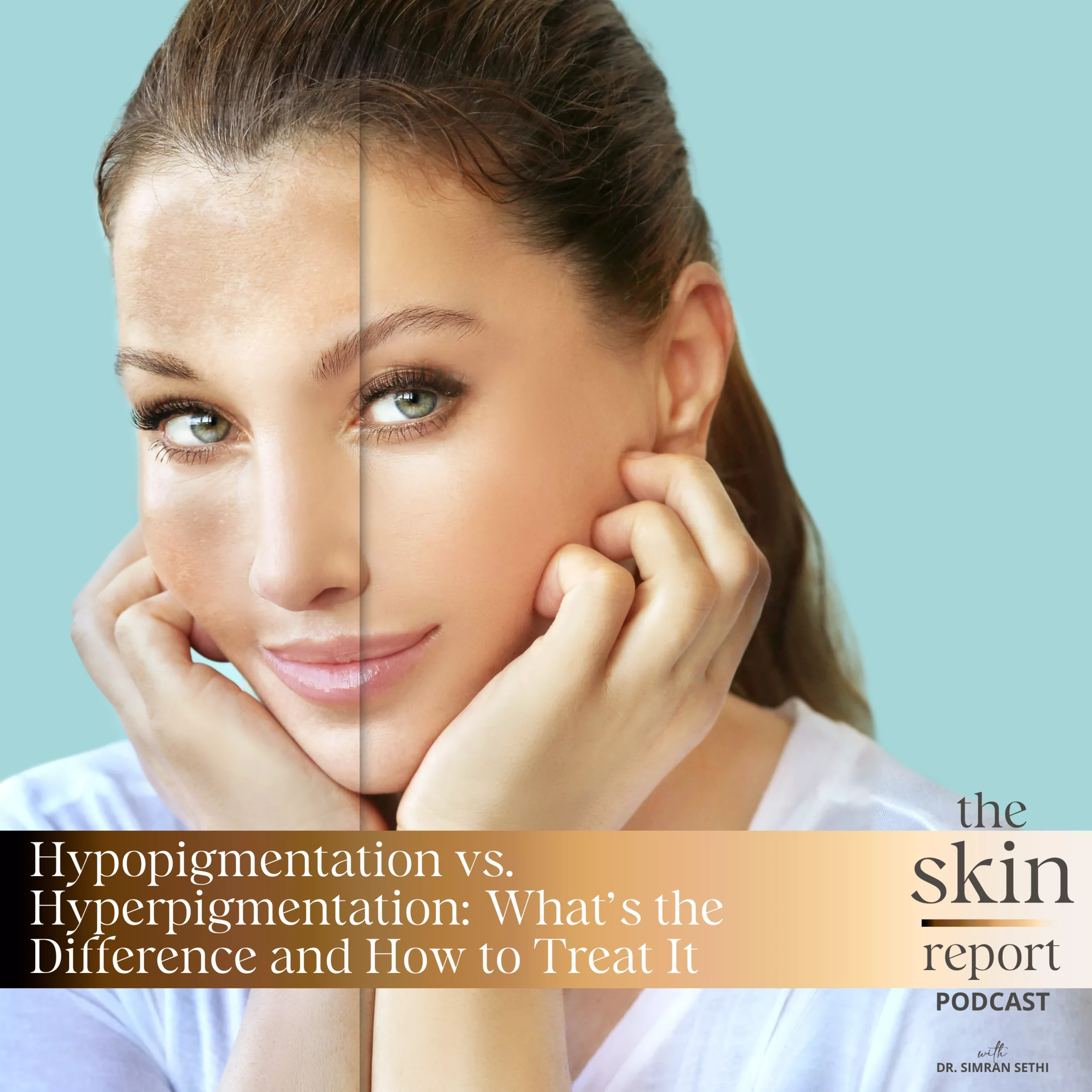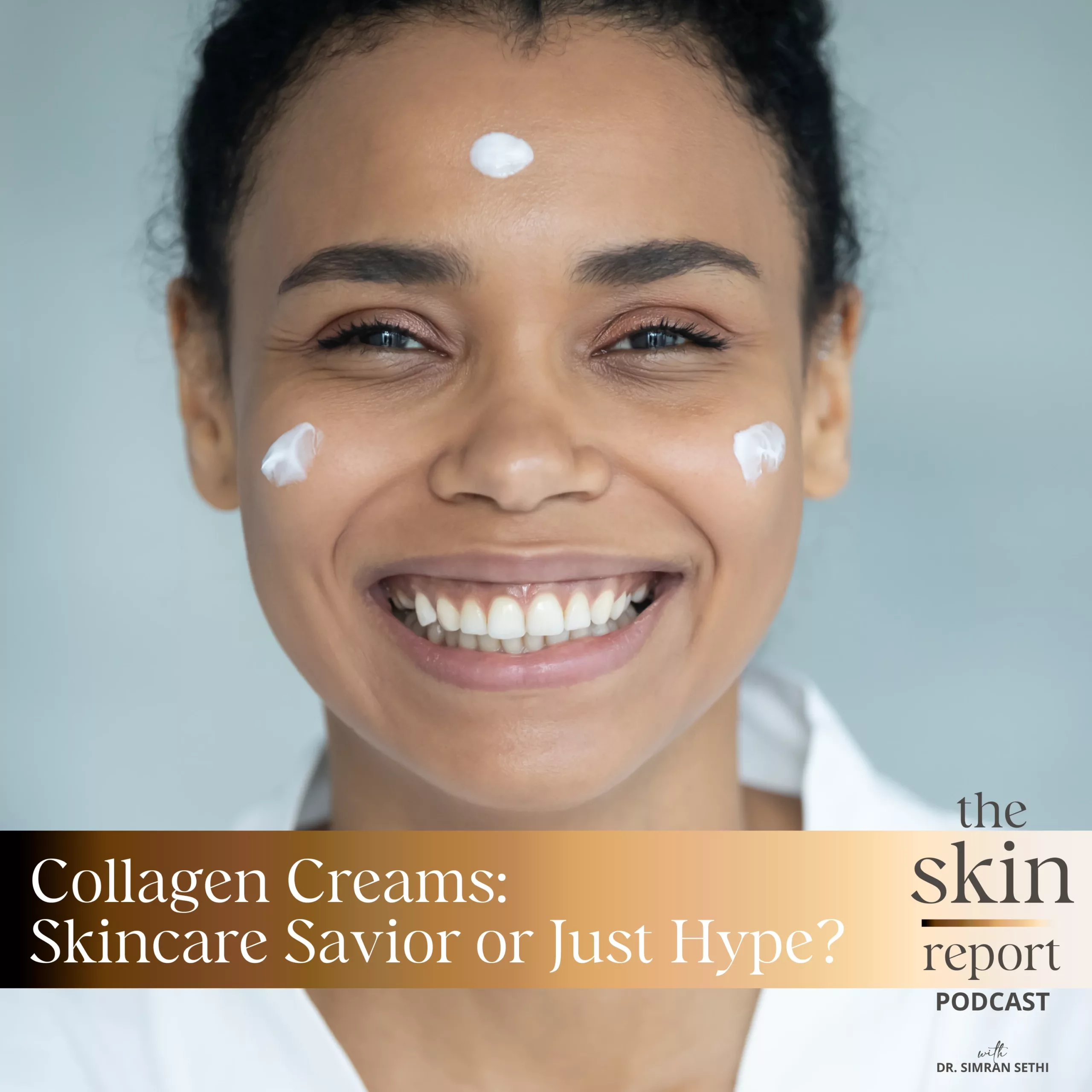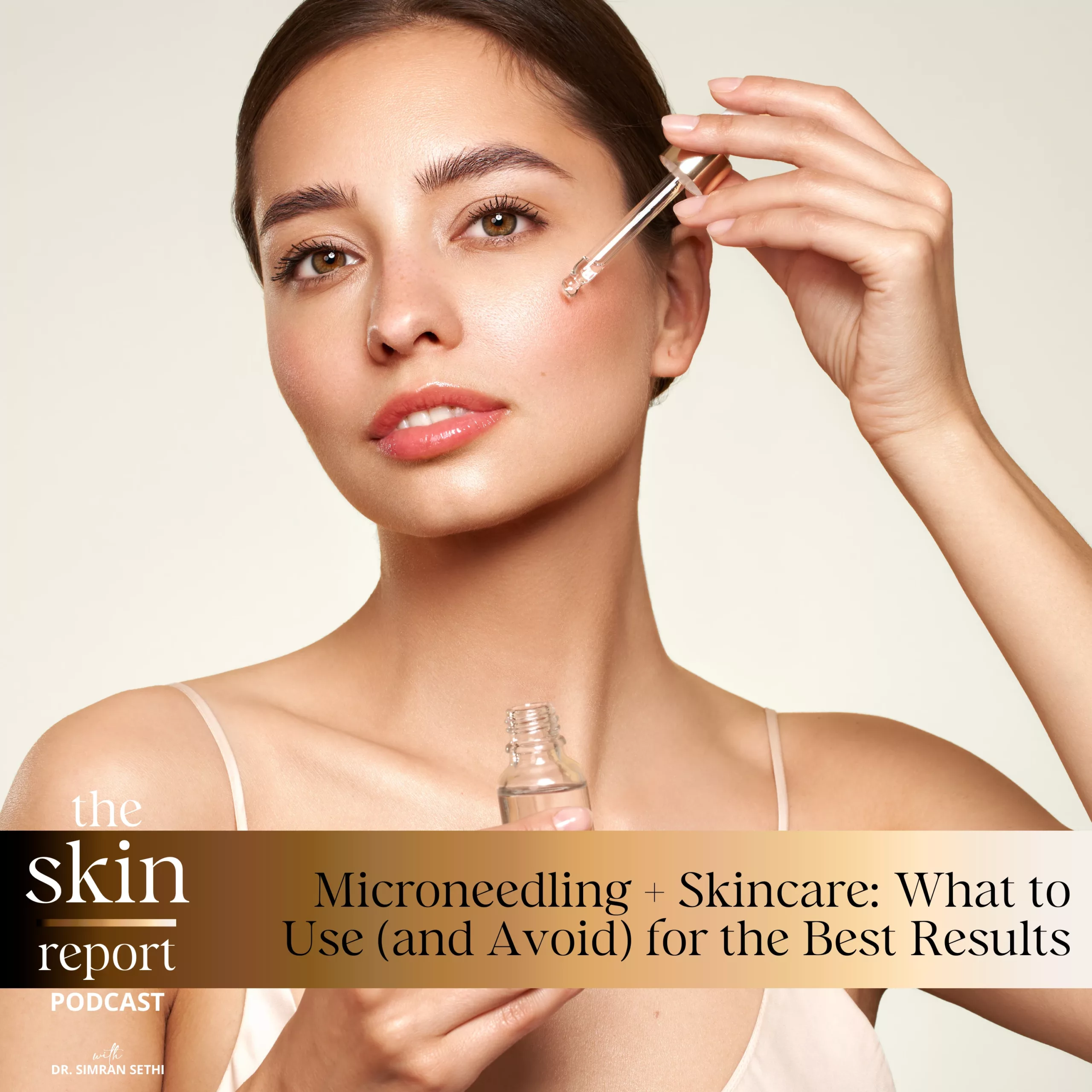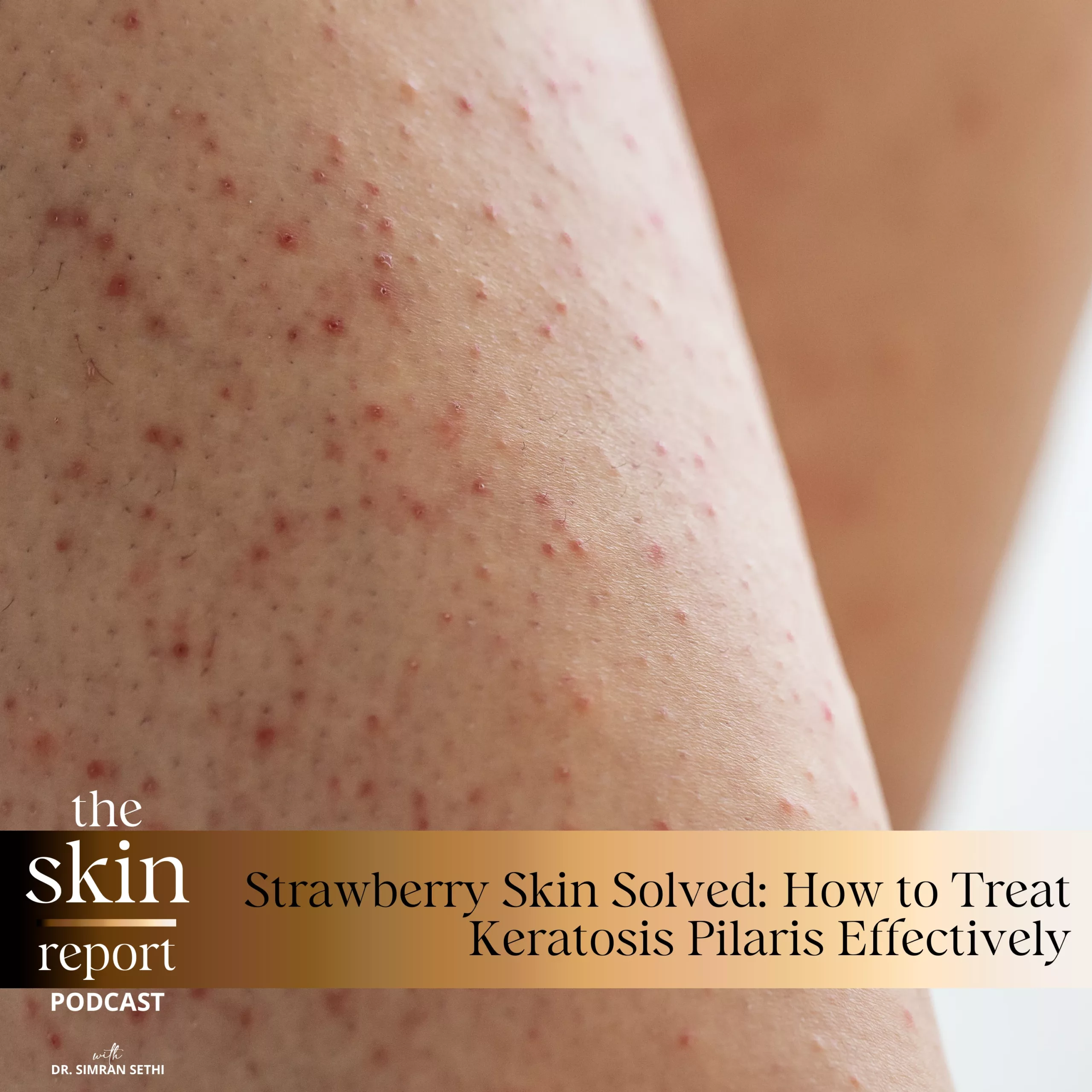What Skin Lightening Is and Isn’t
In this episode of “The Skin Report,” we discuss the myths and truths surrounding the practice of skin lightening. From discussing the nuances of treatments like IV glutathione and vitamin C infusions to clarifying common misconceptions , such as the idea of skin lightening as a means to change one’s racial appearance, and explain the actual goals of achieving an even, healthy skin tone, join us as we look at what skin lightening really means from a medical and cultural perspective.
Tune in to break down the stigma and understand the science behind achieving brighter, healthier skin without altering one’s identity.
Exclusive Offer for the Skin Report Audience:
Use SKINREPORT20 in the shopping cart to receive 20% discount
LEARN MORE!
The Skin Report Podcast : Subscribe and Download!
Skin By Dr. Sethi – Blog
Skin By Dr. Sethi – Skincare
Skin By Dr. Sethi – Beauty Instagram
Dr. Sethi’s Medical Spa
Dr. Sethi’s Medical Spa – Instagram
Dr. Sethi:
Hello everyone and welcome back to The Skin Report. Today we are going to do a deep dive into the world of skin lightening and why it’s so controversial.
Dr. Sethi:
So of course, as always, I’m joined by my co-host Shaheera. Hey Shaheera.
Shaheera Bhutto:
Hello. Thanks for having me.
Dr. Sethi:
So today, Shaheera, thank you for being here. We are going to talk about a controversial topic, skin lightning, and I think that there’s a lot to it. So, I know we have to really just condense things, but I think I just wanted to go over some of the judgments that people pass around skin lightening and maybe the lack of knowledge about why people seek it, what’s driving that, and how can it be achieved because there are different ways of achieving that safely or in a way that’s more aligned with people’s real goals. And there’s a lot of, again, controversy about this.
Shaheera Bhutto:
And also to add to that, I think this conversation is because, even from the skincare, from me working on that end of the company, let’s say, and even from UMD, the medical spa, we, me and you, our team, we read so much about the sensitive natures around how people make their skin and aesthetic choices. And that’s why I think this conversation is so important because there are many angles to just the world of skin lightening, how it’s perceived. From your medical clinical perspective, what is skin lightening to you?
Dr. Sethi:
So first of all, I have to say that I didn’t know about skin lightening until I got into medical aesthetics because I learned about IV skin lightening with injections of glutathione and vitamin C. And in my three offices, we do thousands of skin lightening injections. And sometimes I have to say people have been, just based on social media comments and just there’s a judgment around it, and there’s this question of, well, if you are a brand that promotes melanin positivity, skin tone positivity, why are you offering skin lightening treatments? Skin lightening to me means making your skin look even and at its optimal health, so that it’s nice, clear, and healthy, and maybe it looks like it looked as if you didn’t have a sun tan. And that is true for anyone. A Caucasian person who has not experienced a sun tan is going to have very clear skin without sunspots, right? So, we are no different in that sense, that skin lightening to me means having clear skin, healthy skin, that is even toned and the shade of the skin color that it would be if you hadn’t been out in the sun for a very long time.
Shaheera Bhutto:
Do you think there’s a semantics issue here for, do you think skin lightening, yes, it definitely has a space in the skin and beauty industry, but when people do jump to conclusions about it or when people are seeking it, do you think that they have, they’re being offered a solution that’s called skin lightening, but really what you’re saying is they’re also just looking to have an even complexion or just a brightened or an enhanced skin tone? They’re not trying to change their race.
Dr. Sethi:
No, they’re not trying to change their race. They’re trying to look like they would, if they hadn’t been out in the sun much. And that’s literally it. And they’re not trying to look like a different person. They’re not trying to look like they’re a different race. And I think that’s where sometimes some of that shaming comes in, in a way. Social media teaches us a lot. It allows us to stay in touch with our friends and know what influencers are doing and all. But it can be a pretty nasty place, which is driven by misinformation. Have you ever seen a person who got lighter because they hadn’t been out in the sun much? Did it change what your understanding of their race was? No. This is exactly the same thing. It’s accelerated because we’re giving them an IV infusion of antioxidants. That’s literally it. They’re not bleaching their skin.
Dr. Sethi:
And that’s why you can achieve it in a very healthy and safe way. Now when it comes to how people in other cultures see skin lightening, I think in the western world, the word skin lightening is a little more politically charged. And if you take the term skin lightening in India or the Philippines or Thailand, where it’s a very common practice, that’s just what they call it because in their translation it means having lighter skin. It doesn’t mean being a different race. So again, yeah, it is a semantics issue. It’s not politically charged there, as we have made it in the western world.
Shaheera Bhutto:
And I think you and I have had a lot of discussions about it. I’m sure a lot of people do. It’s just, and especially being South Asian women ourselves, we joke about like, oh, when we have gone to visit our motherland or our relatives come and visit us here in the U.S., they’re like, oh, you look so much darker. But there is, it’s weirdly endearing because we’re like, this is hilarious. But they are people who are absolutely influenced by their culture or a historical or generational thing where perhaps that lighter skin is more appealing or more beautiful to them. But I think a lot of people do jump to defend people or create the sort of oppressive nature around it, where it is really often a personal choice.
Dr. Sethi:
I mean, I don’t see anyone being shamed for dying their hair blonde because they’re skin type four. They’re a woman of Middle Eastern descent and they dyed their hair blonde. I don’t see anybody giving the major rage around that, so this is no different. It’s a choice to make yourself look better in your skin. That’s it. And yes, I understand that there’s a lot of colorism and there’s a lot of, there are Indian actresses who are reported not getting certain roles because they don’t have a light complexion, but this has nothing to do with that. This is just people feeling like, hey, what can I do to make myself feel better in my skin, honestly? And that’s it.
Shaheera Bhutto:
On a more very straightforward, I want to feel better in my skin. So, now people come to you for glutathione with vitamin C, IV infusions. What are their most common skin concerns that they want to just treat? Or what are things that they are like, hey, I want to enhance this.
Dr. Sethi:
They come in and they say, hey, I, over the years have noticed that I’ve gotten darker than I used to be. Very, very common thing because they likely move from a place where there wasn’t a lot of sun exposure or-
Shaheera Bhutto:
They’re not using sunscreen.
Dr. Sethi:
… Right. They’re using sunscreen because they weren’t aware. And I just want to come back to that complexion. And I’m like, yeah, easy. This is the right thing for you. Sometimes it’s more complicated. They may have a condition like melasma or acne scars, and this is not the right solution for them, but that’s our job to direct them to the right solution. But most of the time it’s just that nobody’s saying, hi, I’m really unhappy with how I look today. And I would be so much happier if I was lighter. I never hear that. I mean, I know I’m exaggerating and oversimplifying, but I think what people think people are thinking, without knowing that, that’s what they’re thinking, and that’s not the truth. It’s just as simple as that. And I’ll give you the scenario. A lot of women from India live in a very humid climate that has quite a bit of pollution. They actually don’t get a lot of sun exposure. They move to California where we’re located and there’s a lot of sun exposure. There’s almost zero cloud cover and no humidity. Their skin gets dry and it starts to hyper-pigment, and they do get darker than they were at their baseline. They want correction of that. Very, very safe way to achieve that is IV glutathione.
Shaheera Bhutto:
This is working inside and out, versus something like a skin bleaching agent like hydroquinone or something. And we can go into that into another episode.
Dr. Sethi:
But yes, this is working. This is actually the natural, a great way to achieve it without harming yourself, in fact nourishing your body with antioxidants. And that’s actually the most common scenario. And I think, and I’m very happy that they’re taking that approach because it is a great approach. It’s safe and it’s very healthy for you.
Shaheera Bhutto:
It has a more holistic approach, I feel like. Whereas if you do something more topical, it does actually cause skin barrier damage, and it actually gives you a complete unnatural skin tone, if the goal is to just lighten your skin.
Dr. Sethi:
Exactly.
Shaheera Bhutto:
Okay.
Dr. Sethi:
Exactly. So, I would say it’s almost like, like I said, bringing yourself back to when you didn’t have a sunburn or a sun tan. And it’s still you. It’s still your tone.
Shaheera Bhutto:
Yeah. And I think that we can talk about this much longer and just there’s a variety of ways to talk about the ways people use it to actually treat hormonal conditions or just generally, like maybe PIH. How do you encourage people to have this discussion? How do you want them to contact you about glutathione, skin lightening?
Dr. Sethi:
Oh, the best way is to write us comments, ask us questions on our YouTube channel or-
Shaheera Bhutto:
Share your experiences with it, yourself.
Dr. Sethi:
… Exactly. Exactly. And don’t be shy to share experiences, and I will love to get back to them. But thank you again so much for being with us today. And please remember to subscribe, share, like, comment, and we will see you next time.


